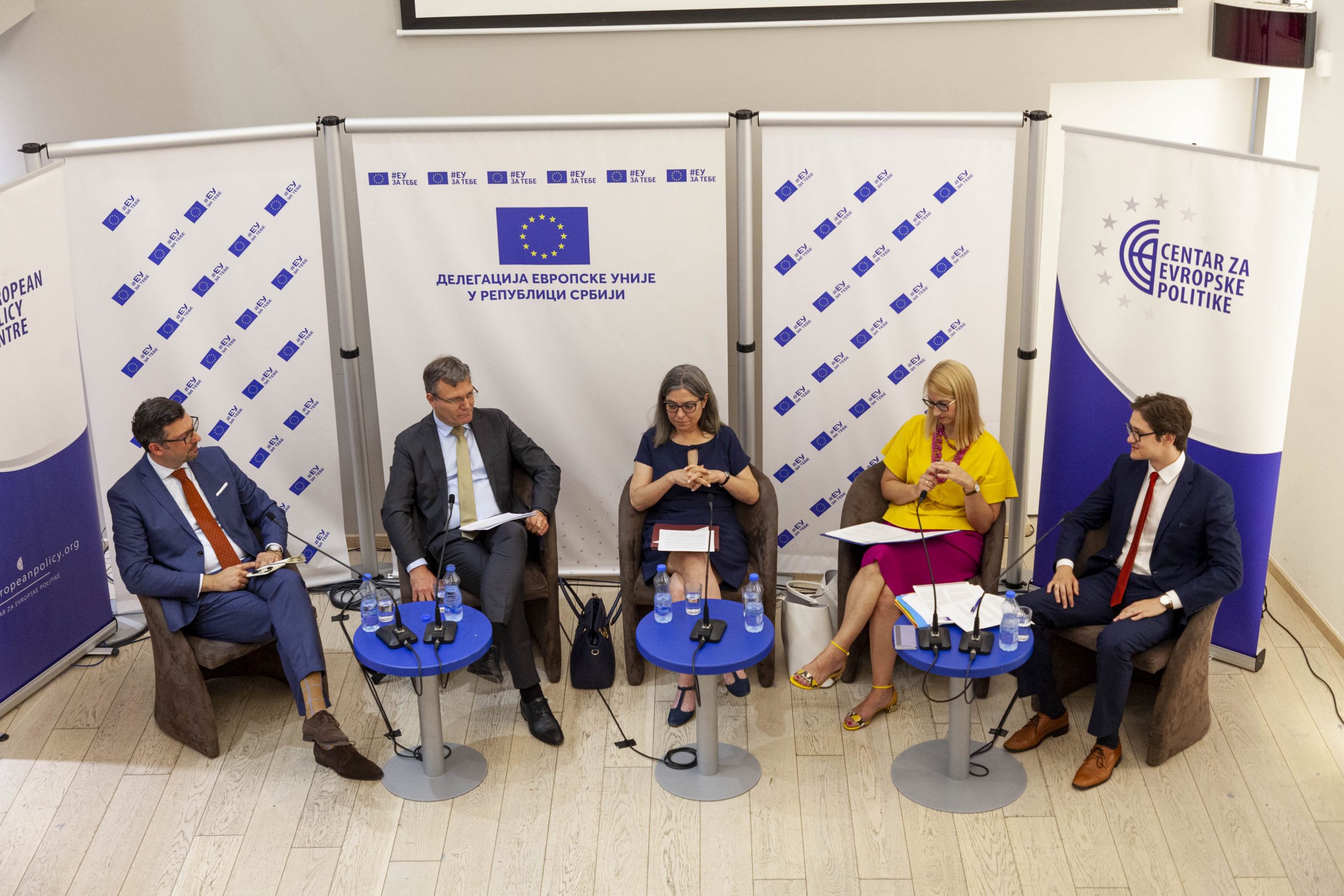“Slovenia has the desire and goal to expand to this area, and we hope that in the next six months, we will take steps to make this process go as fast and as well as possible,” said the country’s ambassador to Serbia, Damjan Bergant at the panel discussion “Towards a post-pandemic Europe “.
The event was organized at the end of Portugal’s presidency, and just before the first member of the former Yugoslavia, which entered the European Union, took over the baton.
The event was organised at the end of Portugal’s presidency, and just before the first member of the former Yugoslavia, which entered the European Union, took over the baton.
The now traditional conversation about the most important challenges it faces and the future of the EU, organised by the Centre for European Policies (CEP), was marked by a debate on the fight against the pandemic and its consequences, the battle for digital and green Europe.
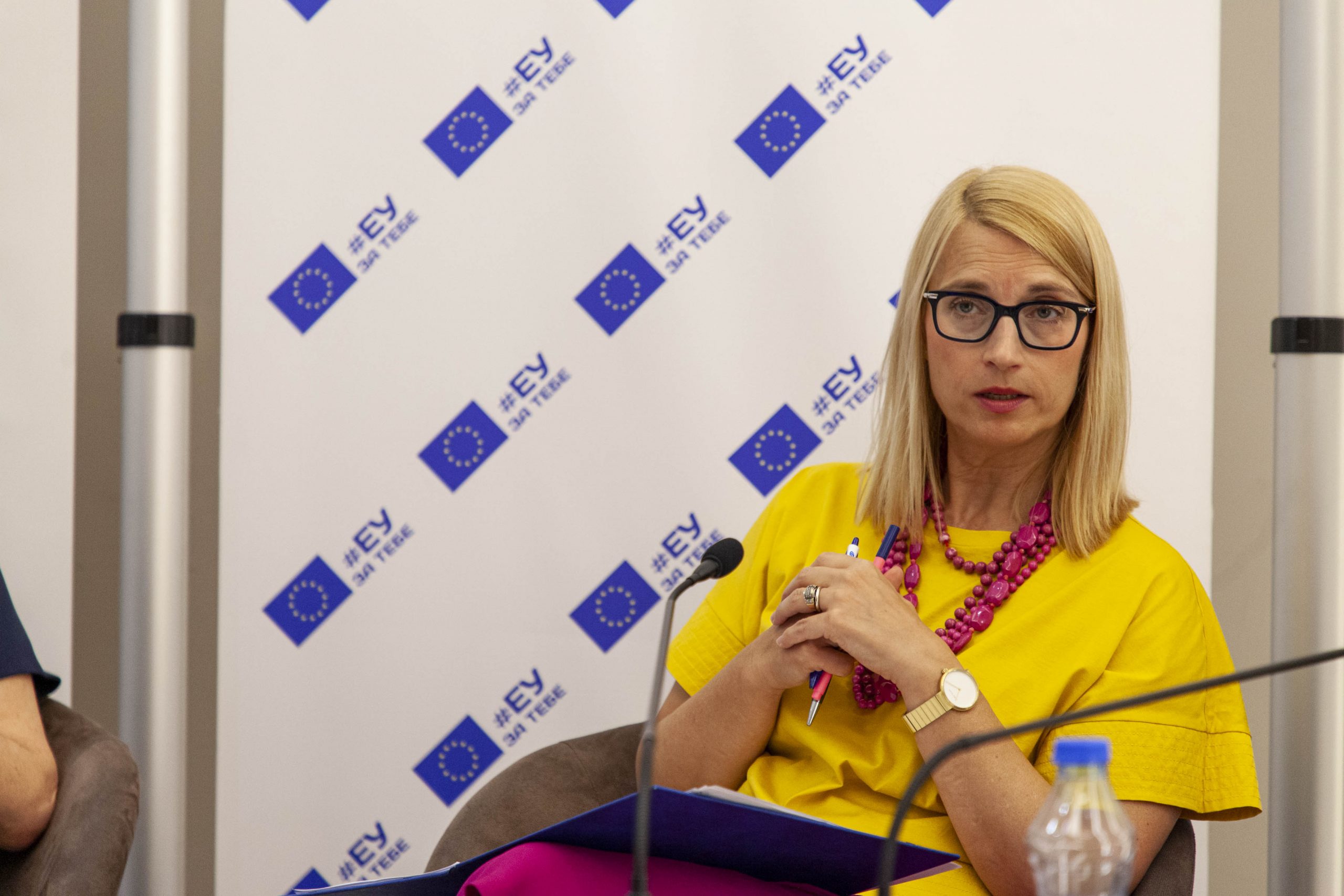
Chargé d’Affaires of the EU Delegation to Serbia Mateja Norčič Štamcar thanked Portugal for the successful presidency, explaining that the country leading the Union has a significant role in setting priorities and agendas, especially in times of crisis.
“The European Union has the capacity to emerge stronger from this crisis. From the beginning, it was necessary to have a common strategy, how to be stronger and more resilient. This work began during the Croatian presidency, was continued by other countries, and will now take over.”Serbia and the Western Balkans have not been forgotten. They have been involved in all these activities,” said Norcic Stamcar.
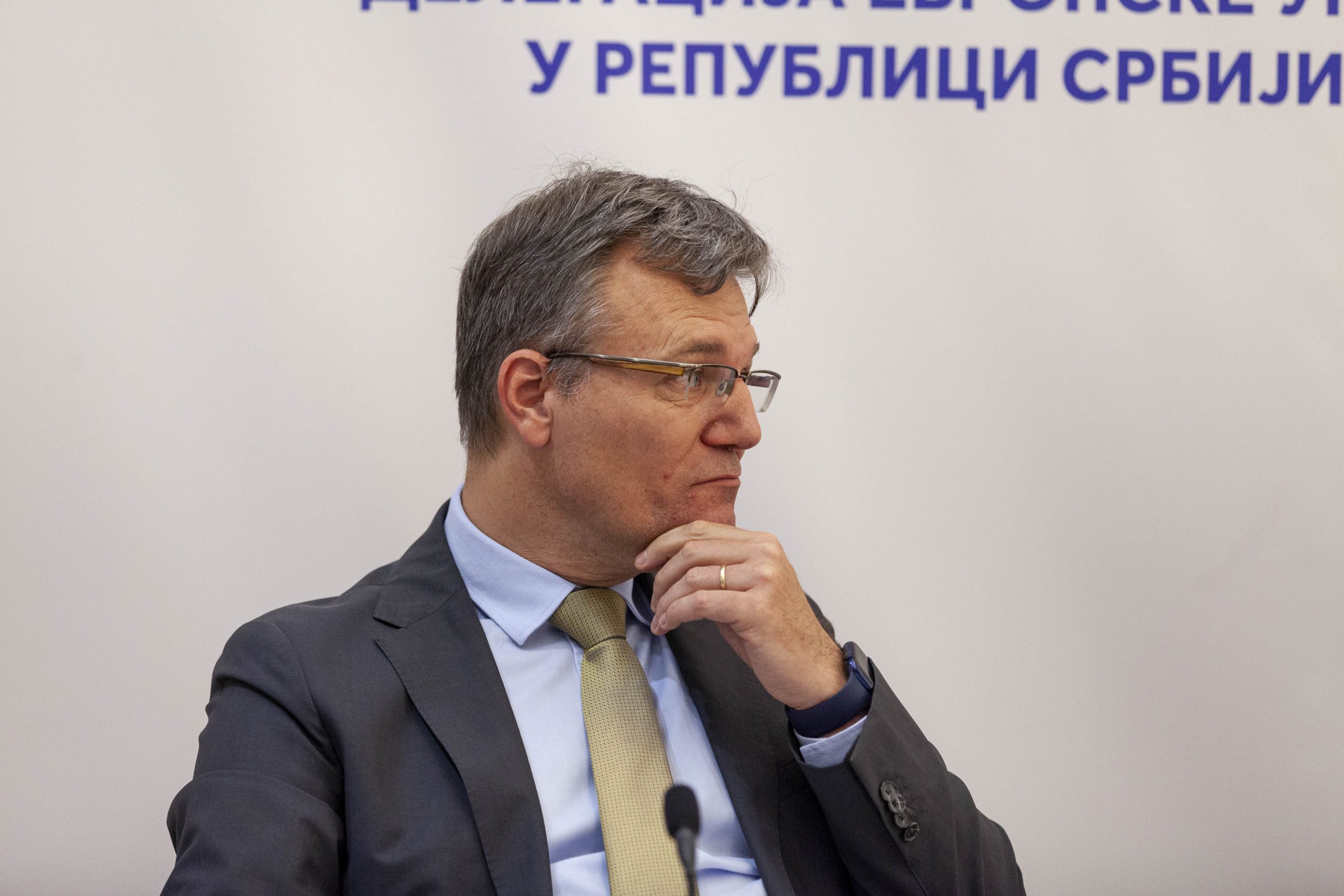
The keyword mentioned in Slovenia’s program for the six-month presidency is – endurance. The slogan – “Together. Durable. Europe” can be interpreted differently. Still, the message remains that it is necessary to approach the solution of current jointly and possible future crises, said Ambassador Bergant.
“We want to cooperate with other 26 member states, with European institutions, but also with countries interested in enlargement, with candidate countries. Our experience can make a valuable contribution. We do not expect any country to join the EU during our presidency, but I hope that some steps will be taken in that direction “, says the Ambassador of Slovenia in Belgrade.
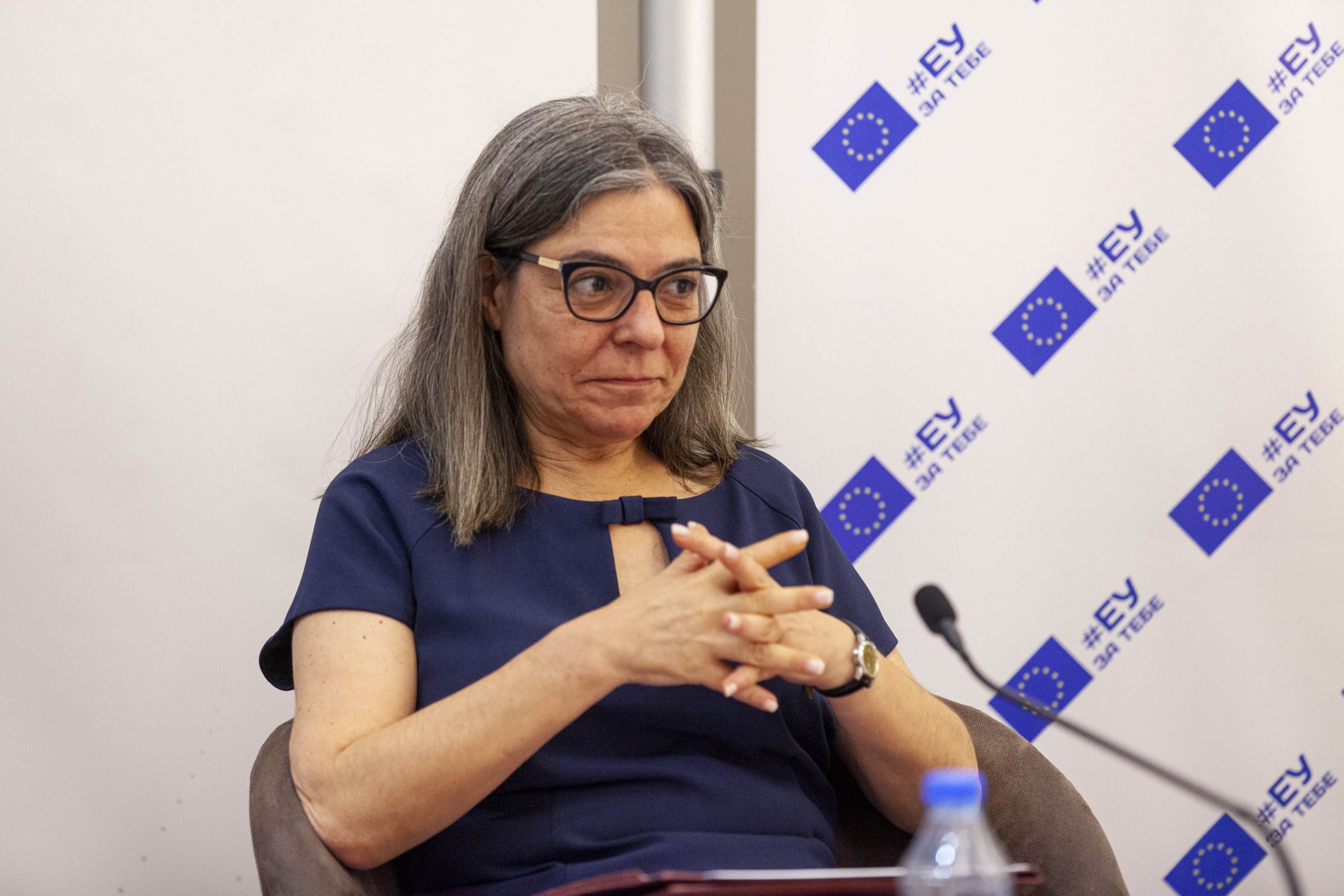
Portuguese Ambassador to Serbia Virginia Pina mentioned the holding of the Conference on the Future of Europe, the agreement on the digital covid certificate coming into force on July 1, the revised civil protection mechanism, the Creative Europe program and the new Erasmus Plus, the social summit in Porto, and the EU-US summit as the major successes of the presidency.
“Overall, I think we managed to meet expectations during a very difficult period. My country held the EU presidency during the lock-in period, and we are now pleased to hand over the baton to our Slovenian friends, the third country of the troika, which includes Germany, which presided the EU in the second half of last year, “said Ambassador Pina.
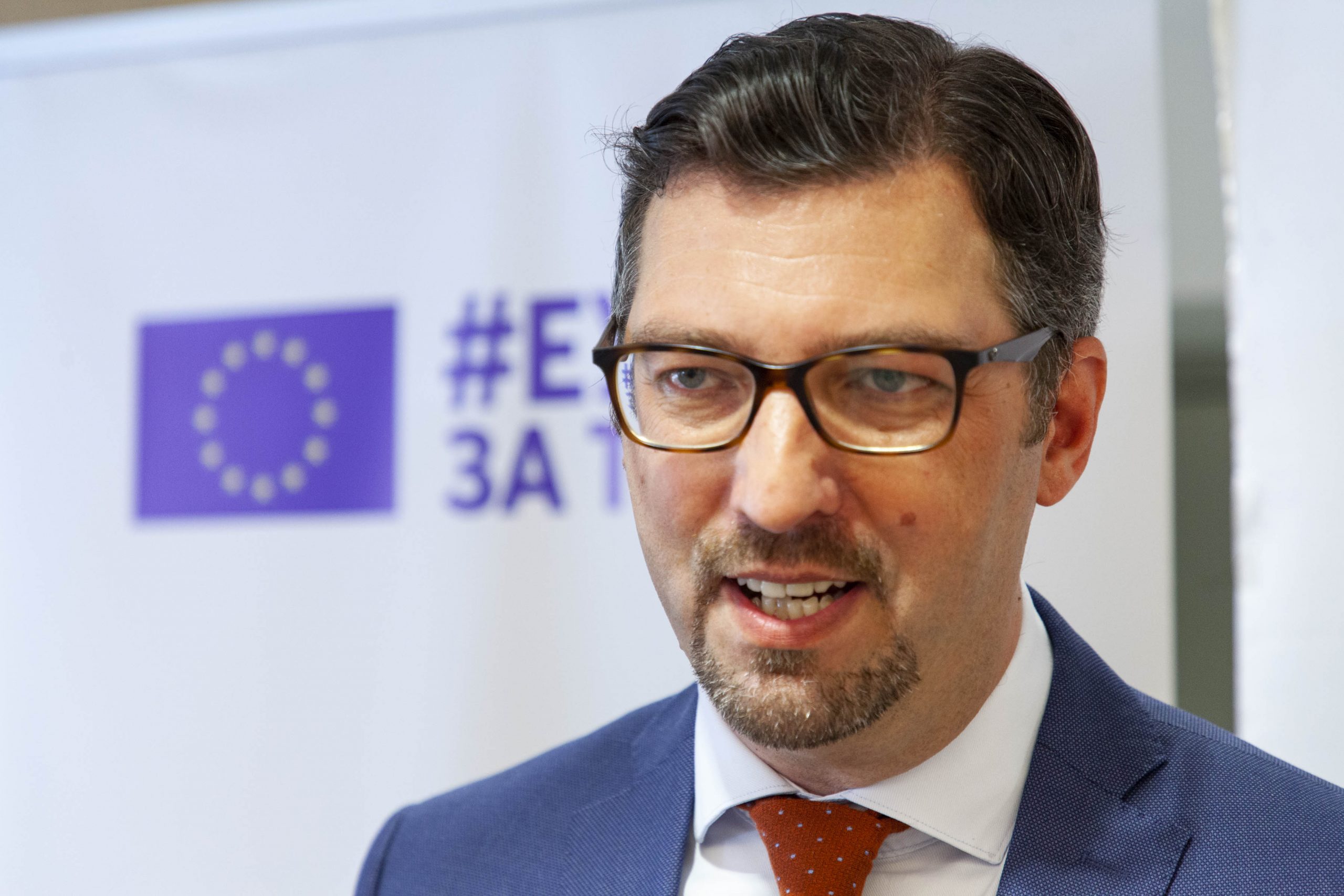
The President of the Steering Board of CEP, Srdjan Majstorović, assessed that Portugal played a crucial role in bringing Serbia and the entire Western Balkans closer to the EU.
“Slovenia has a positive basis to keep the emphasis on how important geographical integration and the entry of the Western Balkans into the EU are for unity, Europeanness, endurance and strength,” Majstorovic pointed out.
During the six-month presidency, Slovenia will coordinate the activities of various levels of European institutions, primarily the meetings of the European Council. This is the second time the country has held the EU presidency since 2008. At the beginning of next year, France will take over the presidency.

